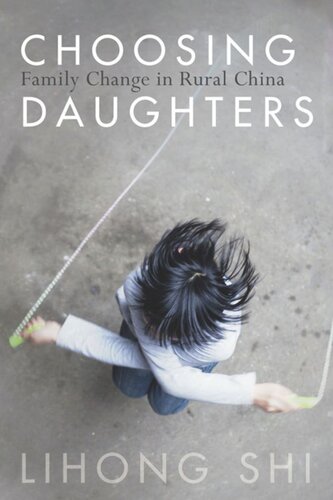

Most ebook files are in PDF format, so you can easily read them using various software such as Foxit Reader or directly on the Google Chrome browser.
Some ebook files are released by publishers in other formats such as .awz, .mobi, .epub, .fb2, etc. You may need to install specific software to read these formats on mobile/PC, such as Calibre.
Please read the tutorial at this link: https://ebookbell.com/faq
We offer FREE conversion to the popular formats you request; however, this may take some time. Therefore, right after payment, please email us, and we will try to provide the service as quickly as possible.
For some exceptional file formats or broken links (if any), please refrain from opening any disputes. Instead, email us first, and we will try to assist within a maximum of 6 hours.
EbookBell Team

4.0
96 reviewsChina's patrilineal and patriarchal tradition has encouraged a long-standing preference for male heirs within families. Coupled with China's birth-planning policy, this has led to a severe gender imbalance. But a counterpattern is emerging in rural China where a noticeable proportion of young couples have willingly accepted having a single daughter. They are doing so even as birth-planning policies are being relaxed and having a second child, and the opportunity of having a son, is a new possibility.
Choosing Daughters explores this critical, yet largely overlooked, reproductive pattern emerging in China's demographic landscape. Lihong Shi delves into the social, economic, and cultural forces behind the complex decision-making process of these couples to unravel their life goals and childrearing aspirations, the changing family dynamics and gender relations, and the intimate parent–daughter ties that have engendered this drastic transformation of reproductive choice. She reveals a leading-edge social force that fosters China's recent fertility decline, namely pursuit of a modern family and successful childrearing achieved through having a small family. Through this discussion, Shi refutes the conventional understanding of a universal preference for sons and discrimination against daughters in China and counters claims of continuing resistance against China's population control program.